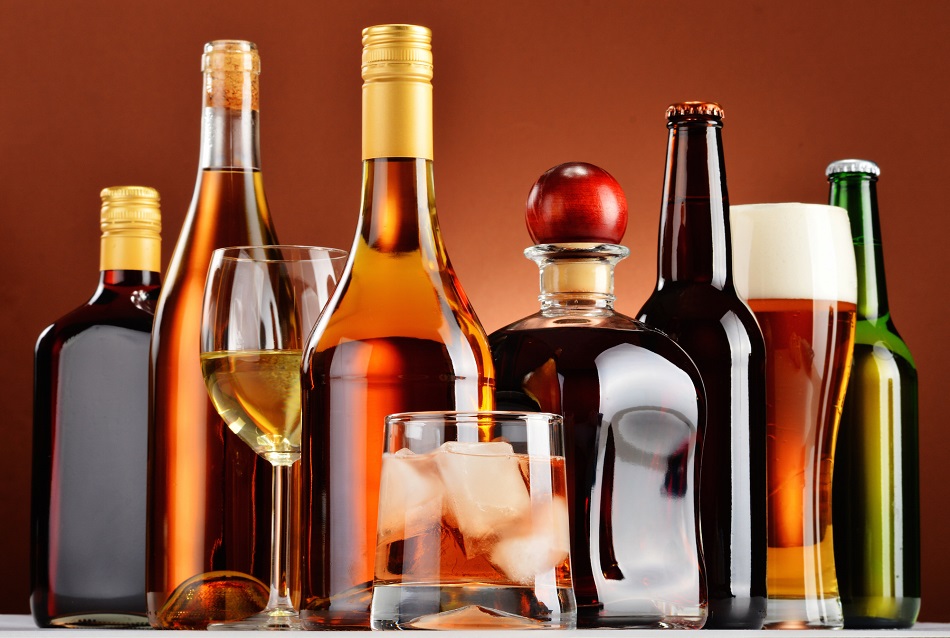
Bottles and glasses of assorted alcoholic beverages.
10 Truths About Alcohol and Athletic Performance
10 Truths About Alcohol and Athletic Performance
While in training camp for a fight, the vast majority of fighters opt to abstain from drinking alcohol. This is not just for the benefit of fight day performance, but also for the optimization of practice, conditioning and performance. Alcohol can directly impact your athletic performance in multiple ways. If you feel you have developed a dependence on alcohol, seek alcoholism treatment as soon as possible. Here are some of the facts behind alcohol consumption and training.
1. Muscle Growth
Both long and short-term alcohol consumption has a diminishing effect on protein synthesis, which can decrease the rate at which muscles grow. Protein synthesis is the process of DNA encoding the production of amino acids and proteins. Both are vital for muscle growth and retention. Alcohol consumption can actually prevent or erase gains made in the gym.
2. Dehydration
After being absorbed through the stomach and small intestines, alcohol moves into the cells of the muscle where it can create an imbalance in the water retained in the body. This can hinder the ability of muscle cells to create adenosine triphosphate (ATP). This is crucial to the contraction of muscles. Lack of ATP generally results in loss of endurance and energy.
Optimal athletic performance during any training camp his highly dependent upon muscle recovery. When sore muscles are left dehydrated there is a much greater risk of cramps, muscle pulls and strains.
3. Sleep Disruption
Despite the effects a “night cap” is rumored to have, alcohol negatively effects sleeping patterns, which prevents the natural secretion of human growth hormone (HGH). Alcohol can decrease the HGH by up to 70 percent. Disruption is also attributed to the fact that alcohol prior to bed can cause immediate transition into deep sleep without the normal first stage of sleep, which is the REM (Rapid Eye Movement) phase.
4. Testosterone Production
There are a number of effects reduced testosterone can have on performance including fatigue, decreased muscle mass and muscle performance. Use of testosterone enhancement has been a controversial topic across leading MMA promotions. When consumed in large amount, alcohol can decrease testosterone production.
5. Memory
Alcohol also impairs the function of the hippocampus, which a part of the brain that is crucial for foundation of memories (it is also a mythical sea monster that is half seahorse and half human). Without the ability to form new memories there is not way to store information. The majority of memory foundation happens during sleep, and as mentioned earlier, alcohol has a negative effect on sleep, which is notable up to six hours prior to going to bed. This could mean that any new combinations, techniques or trained responses may not be fully retained.
6. Weight and Metabolism
The calories in alcohol are treated as fat as opposed to glycogen. The body converts the sugar from alcohol into fatty acids, which leads to increased fat storage.
Because the body cannot store alcohol it makes metabolizing the substance a priority over all other metabolic processes, which includes metabolizing sugars and fats. This can lead to an overall slowing of the metabolism and thus weight gain. Most competitive athletes, even those who aren’t trying to make a certain weight class, may find this to be a disadvantage.
7. Alcohol does not contain useable proteins, minerals or vitamins and also inhibits the body’s ability to absorb certain nutrients from foods including:
- Thiamine (Vitamin B1): Metabolizes proteins and fat for the formation of hemoglobin, which is essential to optimize performance because of its roll in metabolizing carbohydrates.
- Vitamin B12: Helps to maintain healthy red blood and nerve cells.
- Folic acid: Involved in the formation of new cell. Lack of folic acid can cause megaloblastic anemia, which lowers a cell’s oxygen carrying capacity.
- Zinc: Essential to the energy metabolic processes.
8. Hangovers
It goes without saying that hangovers impair the ability to train at an optimum level. The side affects of plentiful and symptoms such as nausea, soreness, depression (due to a spike in cortisol) and headaches. None of those things make training enjoyable.
9. Immune System Depression
One of the largest factors contributing to an inadequate immune system is lack of sleep. Poor nutrition is also a factor. Given alcohol’s negative affect in both these areas, it is not surprising that those who consume alcohol regularly may be more prone to illness. The effects of alcohol on the body’s white cells may also lessen the germ-killing defense system.
10. Red Wine is Not an Exception
There are conflicting studies on the positive effects of red wine on the body. The magic ingredient is “resveratrol.” A study at the University of Alberta in Canada found that the complex boosts function of the heart, muscles and bone. The study was done in rats.
According to Richard D. Semba, M.D., M.P.H., a professor of ophthalmology at the Johns Hopkins University School of Medicine who led a more recent study on the subject, “The story of resveratrol turns out to be another case where you get a lot of hype about health benefits that doesn’t stand the test of time. The thinking was that certain foods are good for you because they contain resveratrol. We didn’t find that at all.”
11. Staying in the System
A night on the town may result in days of discombobulation. Consuming five or more alcoholic beverages in one evening can continue to effect brain activity for up to three days. Moderate consumption can show effects for up to 48 hours.
























